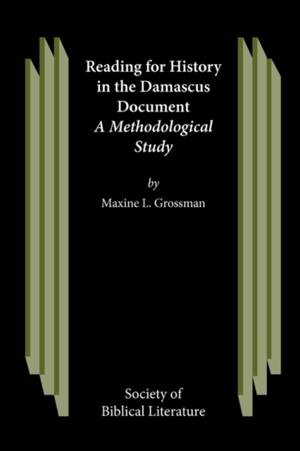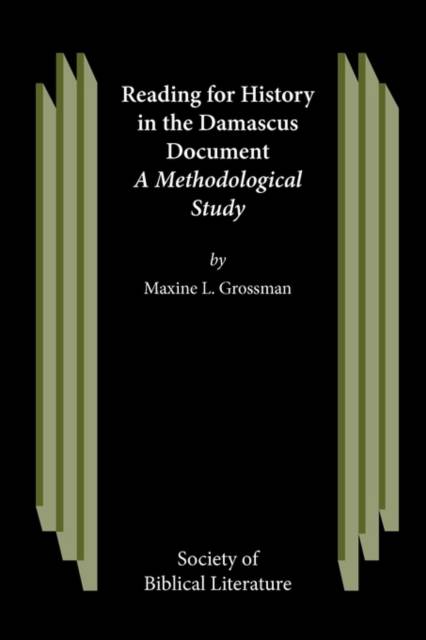
Bedankt voor het vertrouwen het afgelopen jaar! Om jou te bedanken bieden we GRATIS verzending (in België) aan op alles gedurende de hele maand januari.
- Afhalen na 1 uur in een winkel met voorraad
- In januari gratis thuislevering in België
- Ruim aanbod met 7 miljoen producten
Bedankt voor het vertrouwen het afgelopen jaar! Om jou te bedanken bieden we GRATIS verzending (in België) aan op alles gedurende de hele maand januari.
- Afhalen na 1 uur in een winkel met voorraad
- In januari gratis thuislevering in België
- Ruim aanbod met 7 miljoen producten
Zoeken
Omschrijving
Scholars tend to view the Damascus Document as a historical source, but a reading of the text in light of contemporary (audience-oriented) literary criticism finds its emphasis in the ideological construction of history and communal identity, rather than in the preservation of a historical record. An introduction to contemporary literary criticism is followed by a series of thematic readings, focusing on historical narrative, priestly imagery, and gender in the covenant community. Each theme is examined in terms of its potential for multiple (sometimes contradictory) interpretations and for its place in the larger sectarian discourse. This study offers an alternative approach to the historiography of ancient Jewish sectarianism, acknowledging the presence of competing claims to shared traditions and the potential for changes in textual interpretation over time or among diverse communities.
Specificaties
Betrokkenen
- Auteur(s):
- Uitgeverij:
Inhoud
- Aantal bladzijden:
- 276
- Taal:
- Engels
- Reeks:
Eigenschappen
- Productcode (EAN):
- 9781589834279
- Verschijningsdatum:
- 15/04/2009
- Uitvoering:
- Paperback
- Formaat:
- Trade paperback (VS)
- Afmetingen:
- 152 mm x 229 mm
- Gewicht:
- 408 g

Alleen bij Standaard Boekhandel
+ 78 punten op je klantenkaart van Standaard Boekhandel
Beoordelingen
We publiceren alleen reviews die voldoen aan de voorwaarden voor reviews. Bekijk onze voorwaarden voor reviews.









